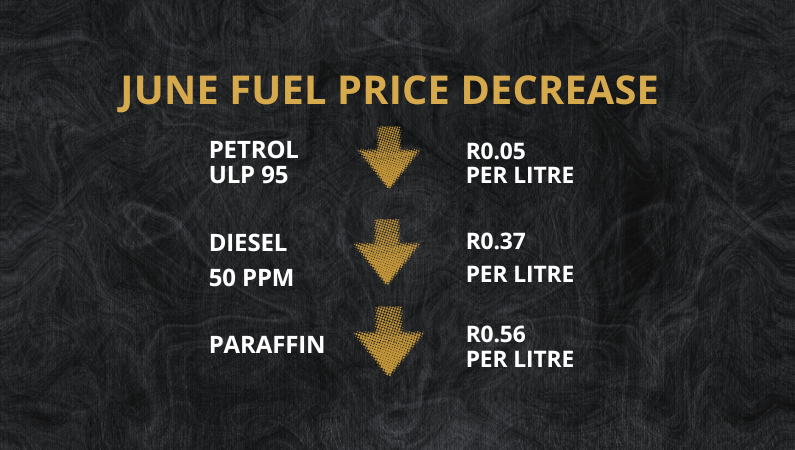Beyond the Barrel: How AI and Data Analytics Are Changing Fuel Supply Forecasting in SA
As fuel supply chains grow more complex, artificial intelligence (AI) and predictive analytics are emerging as game-changers—especially in a market like South Africa, where power disruptions and geopolitical shifts frequently challenge traditional forecasting models.
At Virgin Fuels, we’re leveraging the power of data to stay ahead of the curve and deliver smarter, faster, and more reliable service to our clients. Here’s how:
Smarter Demand Forecasting
AI algorithms analyse historical usage patterns, weather changes, and even load-shedding schedules to predict fuel demand down to the hour. This ensures stock levels are precisely matched to local demand, preventing shortages and excesses.
Optimised Delivery Routes
Data analytics help our logistics teams identify the most efficient delivery routes in real time—accounting for traffic, road closures, and localised unrest—minimising delays and fuel transport costs.
Proactive Risk Management
AI flags risks before they become crises. Whether it’s a disruption in global oil supply or a sudden surge in demand, predictive tools help us respond faster and more effectively.
Enhanced Customer Experience
With real-time inventory tracking and automated scheduling, our clients enjoy greater transparency and more accurate delivery timelines.
In a landscape where every litre and every hour counts, AI is helping us deliver more than fuel—we’re delivering foresight and flexibility. Virgin Fuels remains committed to innovation that keeps your operations moving, no matter the challenges on the road ahead.

Powering Through the Dark: What Eskom’s Energy Mix and Load Shedding Mean for Fuel Reserves and Emergency Stockpiling
As Eskom grapples with a fragile energy mix and persistent load shedding, the ripple effects are being felt far beyond the power grid—especially in the bulk fuel industry. For sectors like mining, manufacturing, and agriculture, where downtime equals lost revenue, fuel has become a critical backup lifeline.
With unreliable electricity supply, the demand for diesel-powered generators and backup systems continues to rise. This has triggered a noticeable increase in bulk fuel purchases, with many clients choosing to stockpile in anticipation of grid instability.
Here’s how load shedding is reshaping fuel logistics in South Africa:
🔋 Increased on-site fuel storage by mines and factories for emergency use
🛢️ Greater pressure on suppliers to maintain reliable reserve capacity
🚛 Strain on delivery schedules due to high demand spikes during outages
⚠️ Risk of fuel degradation and theft if stockpiling isn’t properly managed
At Virgin Fuels, we advise clients to implement a structured fuel reserve strategy, conduct regular fuel quality checks, and invest in secure, weather-proof storage. With the grid’s future still uncertain, smart stockpiling and trusted supply partnerships are more important than ever.
Fuel Theft and Fraud in South Africa: What We’re Seeing and How Clients Can Protect Themselves
Fuel theft and fraud continue to pose serious threats to depots, truck stops, and businesses with large fleets across South Africa. With rising demand and valuable fuel stock in motion, syndicates are targeting both urban and rural supply chains.
Here’s what we’re seeing on the ground:
Siphoning and Skimming: Fuel is often siphoned from tanks during transit or after-hours at depots. Unsuspecting drivers may be offered bribes to participate in fuel diversions.
Card Cloning and Digital Fraud: Fraudsters target fleet fuel cards and digital systems with cloned cards, duplicate authorisations, or unauthorised top-ups.
Meter Tampering: Fuel dispensers and truck meters are being illegally altered to under-deliver fuel while charging for full volumes.
False Invoices and Ghost Deliveries: Fraudulent paperwork is used to “prove” delivery where none occurred—or the volumes delivered are significantly less.
What You Can Do to Stay Protected:
✅ Install GPS and remote tank monitoring systems.
✅ Use fuel cards with real-time alerts and spend limits.
✅ Secure your premises with CCTV and lighting.
✅ Partner with trusted suppliers like Virgin Fuels who value transparency.
✅ Audit your fuel records regularly for discrepancies.
Fuel security is no longer optional—it’s essential. Let us help you safeguard your operations.

